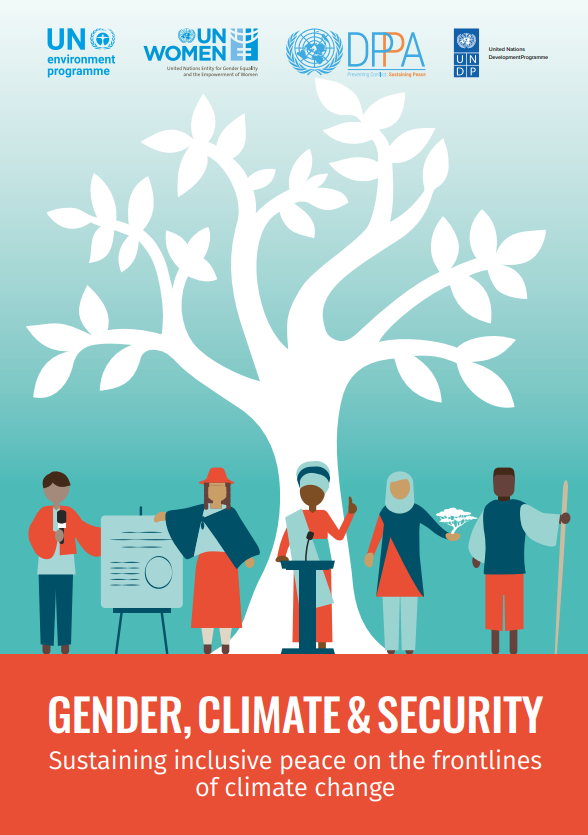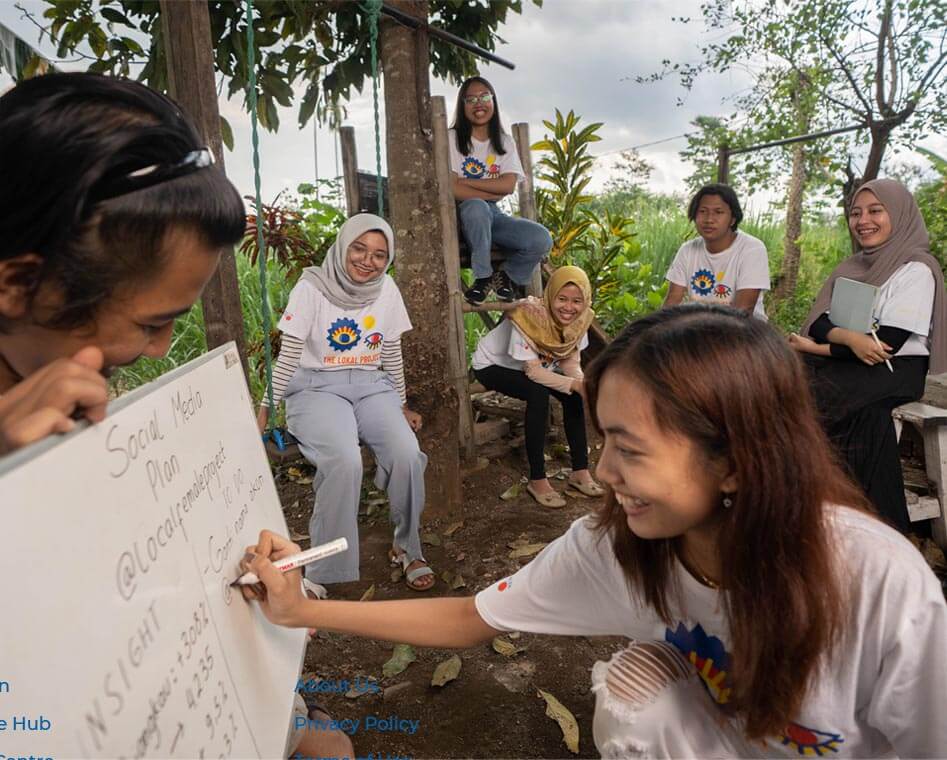
Gender, Climate and Security: Sustaining Inclusive Peace on the Frontlines of Climate Change
Publication Date: June 9, 2020
Total Pages: 50
Organization: UN Women, UNEP, UNDP, UNDPPA/PBSO
Languages: English
Country/Region: Global
Topic Area: Gender equality and women’s empowerment, Peace and security, Relief and Recovery
Resource Type: Reports
Abstract
Climate change – the ultimate “threat multiplier” – is a defining threat to peace and security in the 21st century. Its impacts have already increased the insecurity of vulnerable communities in several regions across the globe, exacerbating loss of livelihoods, food insecurity, competition over scarce resources, human mobility and political and economic instability. In fragile and conflict-affected settings where governance is limited or ineffective, the consequences of climate change can interact with other political, social, and economic stresses to compound existing tensions, which can undermine development gains, escalate into violence or disrupt fragile peace processes. In turn, violent conflict and political instability leave communities poorer, less resilient, and ill-equipped to cope with the effects of climate change.
The impacts of climate change and its associated security risks have important gender dimensions that shape how men and women of different backgrounds experience or contribute to insecurity. A recent study exploring the linkages between gender inequality, climate vulnerability and state fragility through country-level indicators found that these factors were positively correlated with one another: countries with relatively higher values in one issue area tended to have relatively higher scores in the other issue areas. These conclusions are supported through emerging field research and anecdotal evidence collected from practitioners across the globe. In many countries, violence against women environmental activists and “defenders” of environmental rights has become a well-documented trend. Recognizing differentiated experiences can help minimize risks across the security spectrum and identify opportunities for building and sustaining a more inclusive peace.

